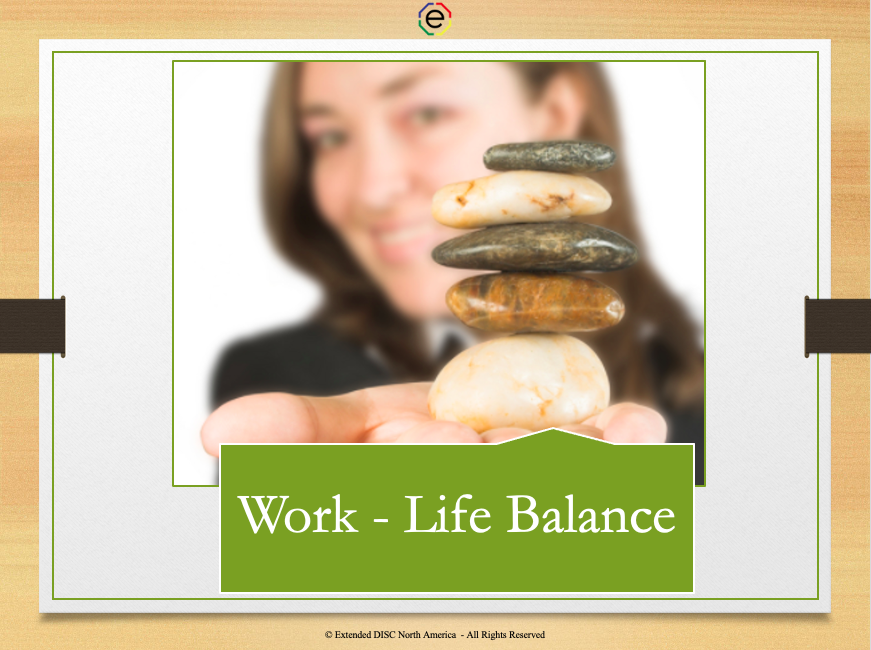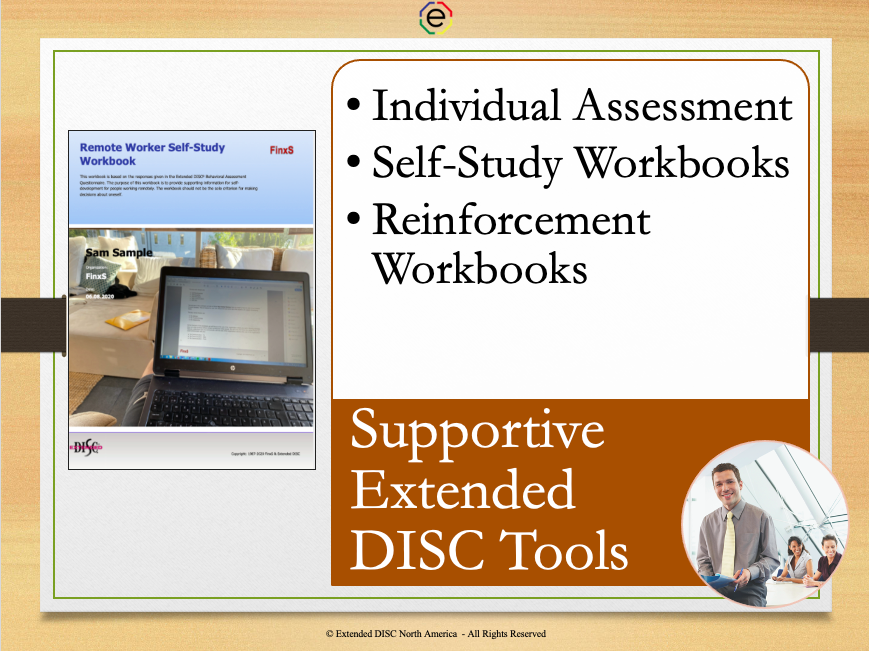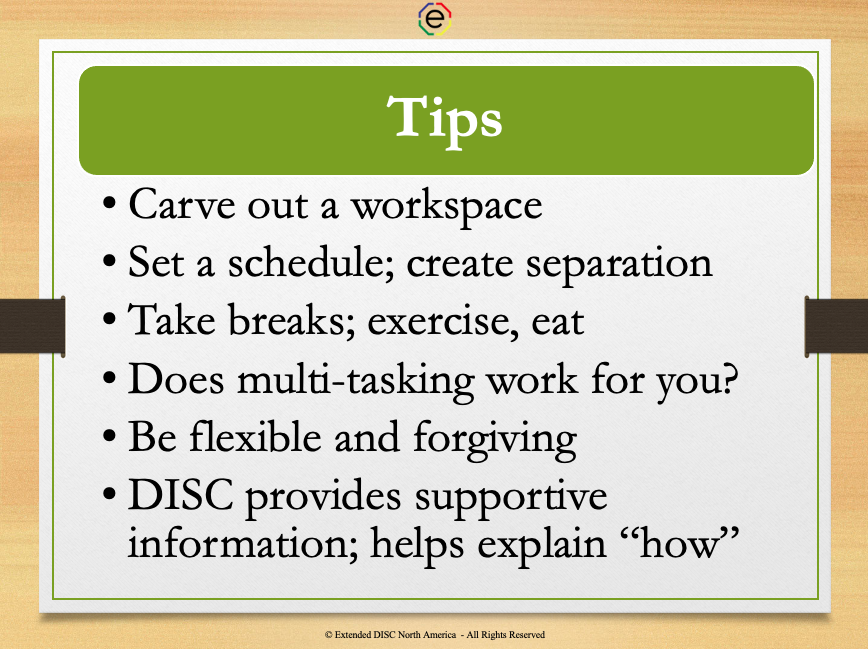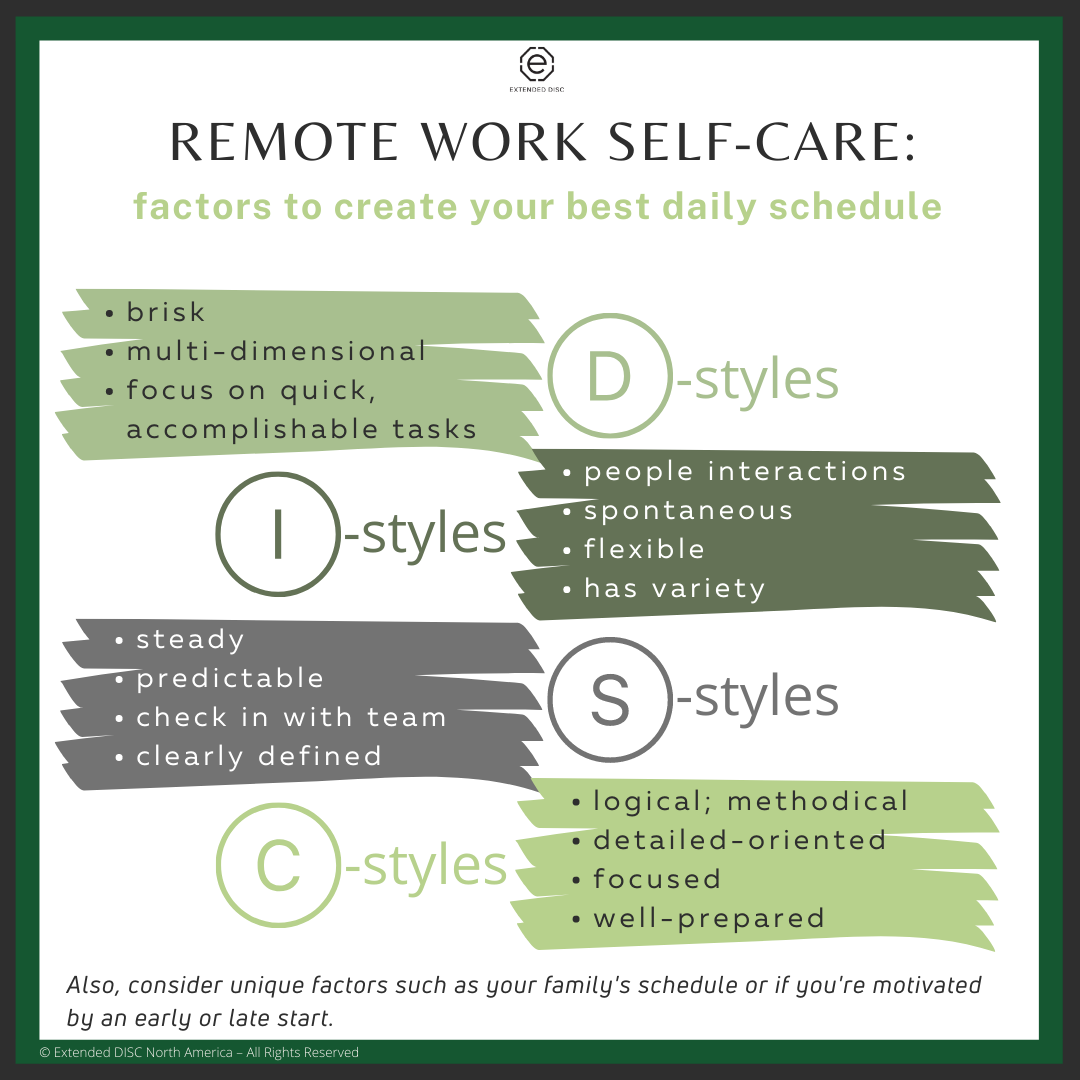What is the difference between working from home and working with home?
 It’s a subtle, yet significant difference that shifts our paradigm. We may see ourselves working ‘from’ home,’ but more often than not, we are really working ‘with’ home. We are just one piece of the home scenario. There are many changes beyond us simply moving our office home. These factors often include spouses and adult children in the same situations, as well as children schooling from home. Everyone needs to be productive at home as well.
It’s a subtle, yet significant difference that shifts our paradigm. We may see ourselves working ‘from’ home,’ but more often than not, we are really working ‘with’ home. We are just one piece of the home scenario. There are many changes beyond us simply moving our office home. These factors often include spouses and adult children in the same situations, as well as children schooling from home. Everyone needs to be productive at home as well.
We’re often made to feel that working from home is a luxury or bonus. Why does it seem like others are thriving while some of us are still struggling to find the balance? That’s not the case for everyone. Understanding our DISC styles can support our most effective approach to managing work-life balance. It’s helps us to understand it’s not the same for everyone.
What is work-life balance and can I achieve it?
We have our work and we have our life. How do we define the balance of the two? Both are always in front of you, but normally each has a distinct entity. However, our current environment has forced the two to come together. The effort to balance can feel like walking a tightrope we are trying hard to stay on. How do we blend all of that and get through the 24 hours in a day?
Balance here should not be seen as an end point; we don’t achieve balance and stop. Balance is a dynamic process. Today may have felt more balanced, but some days life or work will take more precedence than the other. Can we normalize this constant shifting? What can motivate us to keep moving forward?
Our home life tends to have a lot going on already, but now even more so with the pandemic. Many of us are working at home alongside our spouses and adult children. Some of us are parenting and teaching our school-aged learners. Everyone may be competing for resources such as Wi-Fi, desk space, or a quiet area to focus. There are a lot of distractions and dare we say, more opportunities for procrastination? We could all use a little help.
How can DISC help?

Your DISC style can support your ability to balance and be more productive. At our workplaces we tend to have dedicated work areas; whereas, that’s usually not the case in our homes. DISC can help you determine your needs in creating a better work space within your home.
We may not have the luxury of a home office or may need to share the only one in the house. Some of us prefer a quieter area; we need any room we can close the door and not come out until we are done. Some of us prefer the common areas so we don’t miss out on any family interactions. These brief diversions, like a quick chat or fixing lunch for the kids, can often give us the needed energy to refocus. DISC can remind us to take some time and consider what can make our workspace a better fit, even if it’s not ideal.
There are many factors when working with home. We have preferred ways of doing things. You are still working with your virtual colleagues, but now you’ve essentially added your home team to your work team. When we are working from home, typically our most comfortable place to be, we are less likely to adjust our behaviors. Adjusting takes energy and most of us feel we don’t need to make that effort around our family. However, trying harder with the people we value the most can improve interactions and allow us the time to work more productively. DISC also reminds us there is no right or wrong way to office at home, and also reminds us to keep adjusting.
We need to use whatever tools are available to find our most comfortable setup, which in turn, motivates our productivity. DISC is an effective tool. There are different Extended DISC® Assessments to help you find supportive information.
Tips to help you create better work-home balance

Many of us got thrown into remote work and just plug along as best we can. It may be a good time to have your day of reckoning. Is this really working for me or what can I do differently to carve out a workspace that benefits me? If possible, consider a schedule, even if you have to build it around your kids’ schedule. Remember to take breaks, eat healthier, and exercise. Exercise can be as simple as taking a moment to move; get up from your desk and walk around or go outside and breathe in some fresh air. Small changes, using simple systems, can build on each other and help you create better separation and balance.
 It’s easy to tell ourselves to be flexible. Some DISC styles find it natural, while it can be more daunting for others. DISC can help you understand if flexibility is natural for you (just don’t overdo it) or if it’s something you need to be more aware of and practice. Either way, be kind and forgiving to yourself. These are challenging times with big changes and a lot of uncertainty. Try your best. If you’re having a rough day and work-life did not balance out well, try again tomorrow. Be nice to your house members and yourself. You’ve got this!
It’s easy to tell ourselves to be flexible. Some DISC styles find it natural, while it can be more daunting for others. DISC can help you understand if flexibility is natural for you (just don’t overdo it) or if it’s something you need to be more aware of and practice. Either way, be kind and forgiving to yourself. These are challenging times with big changes and a lot of uncertainty. Try your best. If you’re having a rough day and work-life did not balance out well, try again tomorrow. Be nice to your house members and yourself. You’ve got this!
